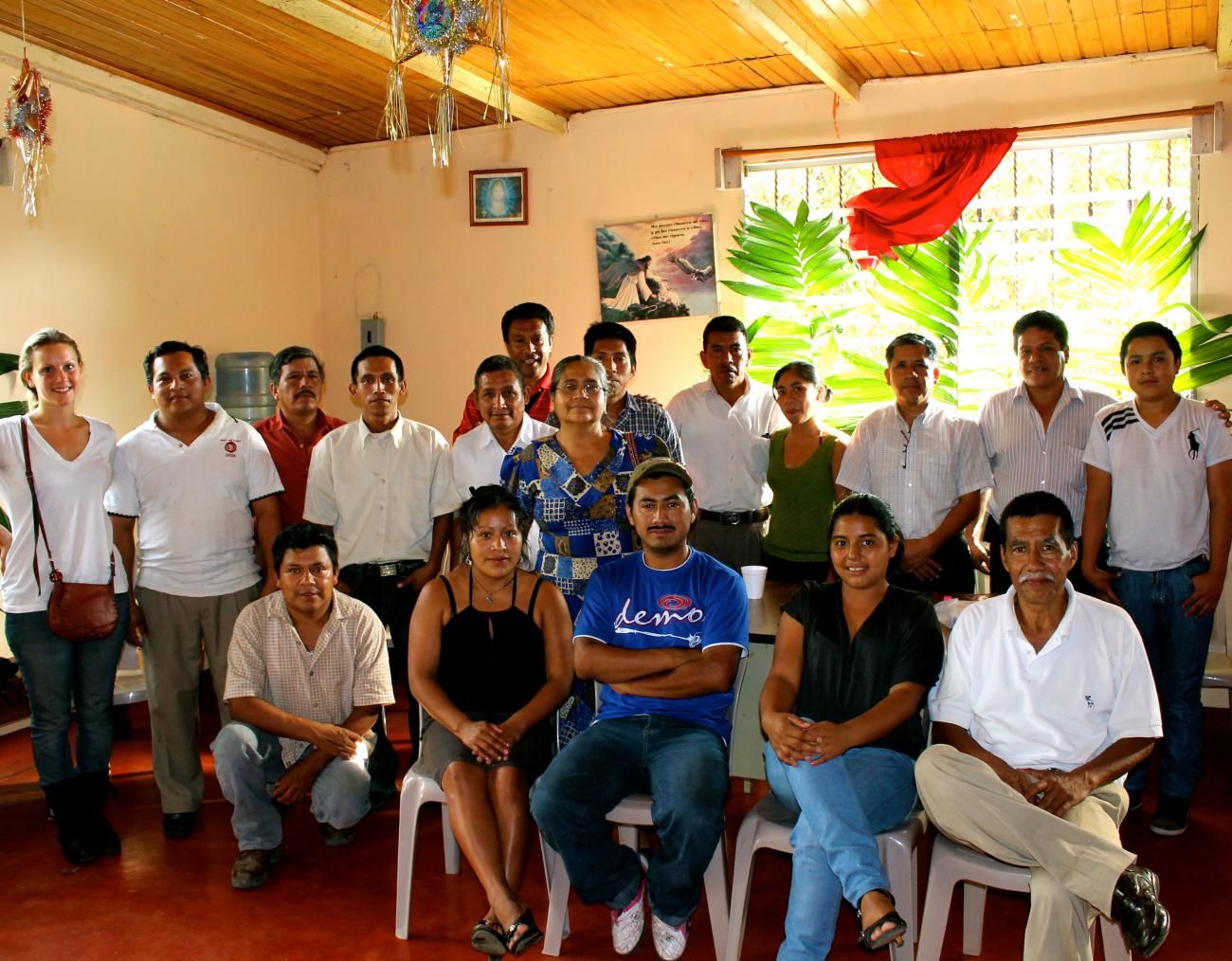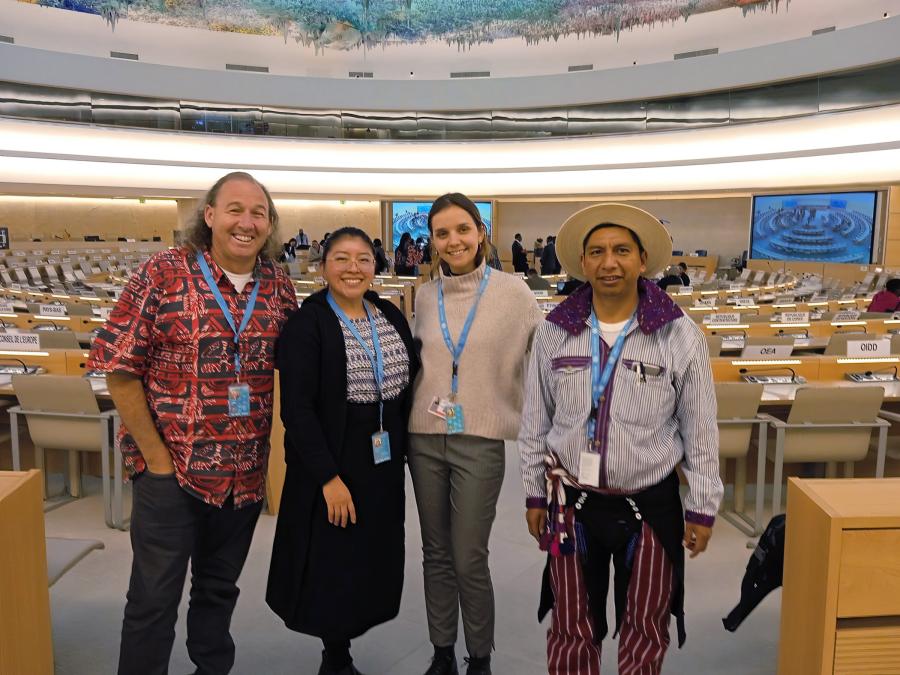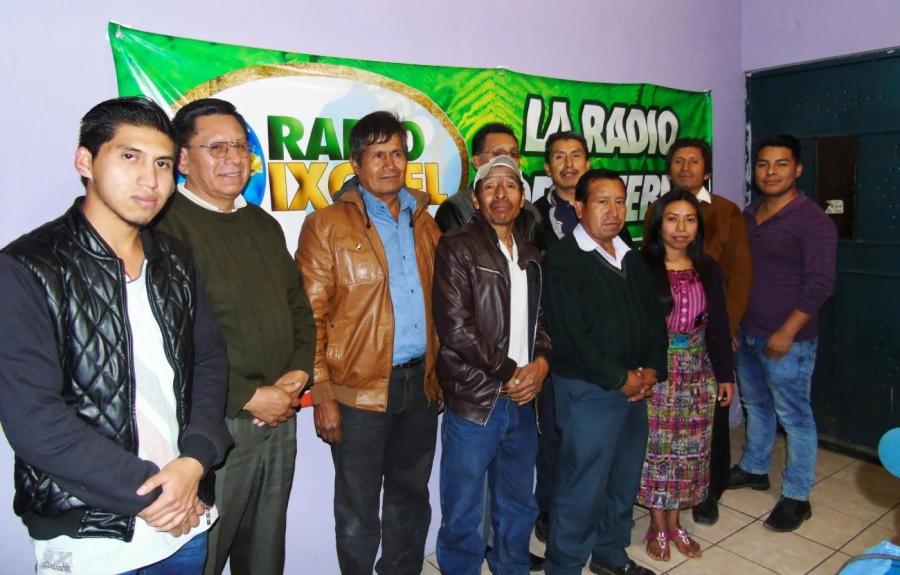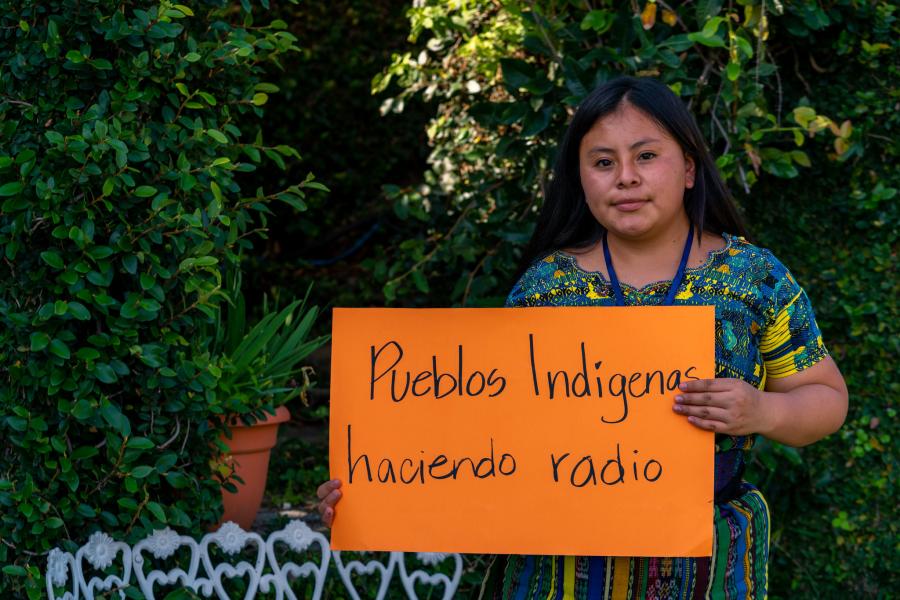
Haz clic aqui para la versión en español
As part of Cultural Survival's Community Radio exchange program in Guatemala, we recently completed the first of a pair of exchanges between Radio Damasco, a radio station located in San Pablo, San Marcos, and Radio Celajes, a station located in Tacaná, San Marcos. Bright and early on February 2, two members of Radio Celajes, accompanied by three members of the Cultural Survival team, were warmly welcomed by more than a dozen staff, volunteers and supporters from Radio Damasco in sunny San Pablo.
Our exchange program provides the opportunity for radio stations to learn from one another's strengths and weaknesses and share ideas regarding best practices, strategies for growth, and community activism. Due to the fact that Radio Damasco had recently been raided by the police, the visit served as a source of support and motivation.
One member of Radio Celajes shared a story illustrating how solidarity between radio stations can help strengthen each station. This past December, Celajes received a threat that they would be raided. When Radio San Jose, another local radio station nearby heard the news, they offered to block the highway with rocks to stop the police from having access to Celajes.
As well, members from both stations told stories that exemplified the importance of community radio as a source of education and community organizing. For example, in 2006, a hydroelectric company known as "Tres Rios" wanted to install a dam on a convergence of three local rivers. The radio station hosted a series of debates with the Mayor at the time, who was in favor of the dam. Using the radio station as a tool they were able to stop the project.
After an inspiring day filled with stories of hard times, community support, and learning from past experiences, the station members were more motivated than ever. One of the founders of 10 year old Radio Damasco concluded, "They've tried to shut us up, but they won't be able to. We're going to return with even more strength".
Our second day in San Pablo fulfilled another objective of the exchange program, which is to offer members of community radio stations the opportunity to discuss approaches to protecting local environments and Indigenous self-sustainability. The Damasco team brought our large group up into the mountains to visit the self-sustainable community, La Igualdad.
[[{"fid":"61551","view_mode":"media_original","type":"media","attributes":{"height":2559,"width":2848,"style":"width: 400px; height: 359px; ","class":"media-element file-media-original"}}]]
Jorge Francisco De Leon, president of the town council of La Igualdad, shares his story.
When we arrived, Jorge Fransisco De Leon, the president of the town council, or COCODE, welcomed us into his home and shared the story of how 11 years ago 150 families from 17 communities banded together to purchase an old plantation and turn it into a sustainable cooperative. Today, this community of 2,200 is totally self governing.. Community rules, self-enforced, forbid violence against women or children, the sale of alcohol, and wandering around after dark. The community is sustained by their fisheries, which serve as an important food source for the community; their organic coffee crops, which paid for the land that they now inhabit, and a breathtaking waterfall and hot springs, discovered and developed by the community as an eco-tourism project.
[[{"fid":"61552","view_mode":"media_original","type":"media","attributes":{"height":2848,"width":3593,"style":"width: 400px; height: 317px; ","class":"media-element file-media-original"}}]]
Some members of Radio Damasco exploring the beautiful waterfall in La Igualdad.
The weekend was a bittersweet learning experience, demonstrating both the passion that community radio members have for the work that they do as well as the great struggles that they face. The positive attitudes held by the Damasco staff in the face of all that they have been through, and the encouragement from the members of Celajes who are fighting the same fight reiterated why the Community Radio Program does such vital work here in Guatemala.



